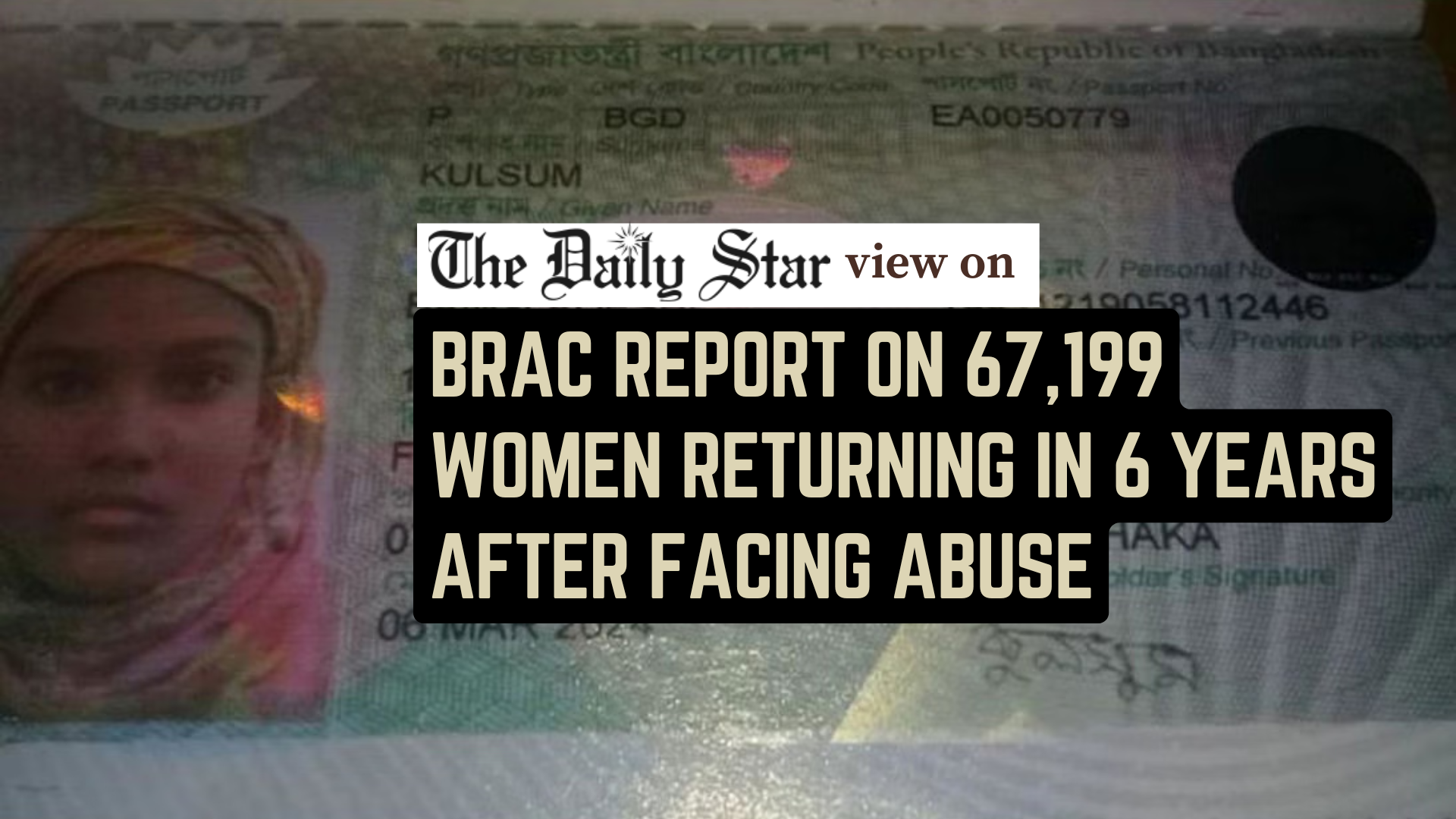Legal labour migration for all workers is crucial

It is most unfortunate that the migration sector continues to be dominated by middlemen despite there being proper government channels for recruitment. According to a recent study by the Ovibashi Unnayan Karmi Programme (OKUP), workers are paying exorbitant fees as most of them migrate through informal channels. Among the 1,084 workers surveyed by OKUP in eight migration-prone districts, 56 percent relied on informal or illegal agents to facilitate their migration to the Gulf countries, while only seven percent reported using licensed recruiting agencies. This highlights the grim reality of the limited accessibility of formal recruitment channels, particularly in rural areas.
Workers have long migrated to Gulf countries under the "free visa" system without any job guaranteed before departure. While the government-fixed average cost for migration to the Middle East is Tk 116,224, workers with free visa have to spend around Tk 499,802 on average. And despite paying nearly five times more than the government-approved cost, 43 percent fail to find work after reaching the destination countries, while many must spend additional money to obtain work permits.
Reportedly, a total of 938,000 workers migrated to the Middle East in 2022. Of them, 57 percent obtained work permits upon arrival, while 21 percent, who initially failed to secure employment, spent an extra Tk 150,000 on average to acquire work permits (iqamas). The OKUP study estimated that Bangladeshi migrants in Gulf countries lost about Tk 30,000 crore in 2022 alone due to unethical and fraudulent recruitment practices under the free visa system.
Another alarming finding is that 72 percent of respondents took loans to cover migration costs, while 11 percent mortgaged their land and six percent sold it. And many of those who returned home without finding jobs were unable to recover their mortgaged land. All this is deeply concerning. Migration experts note that there is no such thing as a "free" visa; under ILO conventions, workers cannot be sent abroad without an employment contract. Yet, many Bangladeshi migrants go without one, leaving them vulnerable to all sorts of exploitation.
We urge the government to take concrete steps to make legal labour migration more accessible and protect our workers from exploitation through strict measures. The recruitment process must be transparent and accountable. Experts also emphasise the need for skill training to prepare our workers for better opportunities abroad. With Saudi Arabia's recent abolition of the Kafala system, we hope the recruitment process for that country will be easier now, while the hardships faced by our workers will be reduced.



 For all latest news, follow The Daily Star's Google News channel.
For all latest news, follow The Daily Star's Google News channel. 


Comments